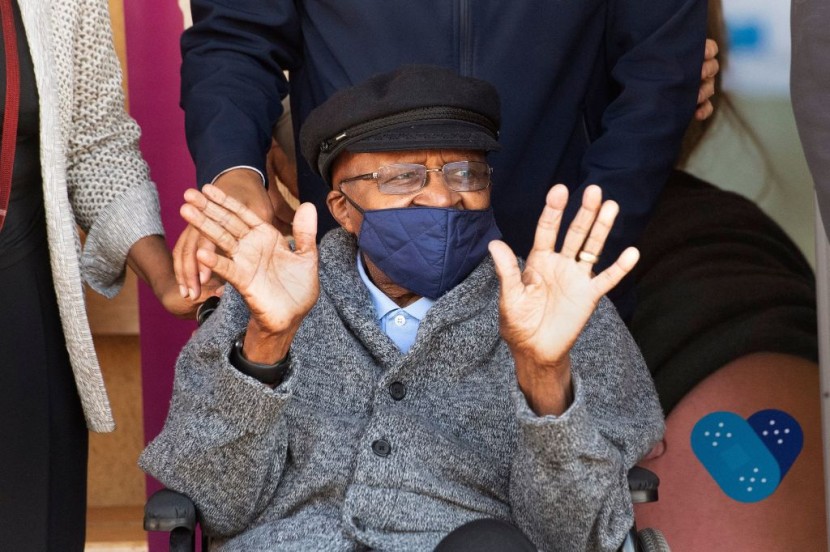
South Africa's Archbishop Desmond Tutu, who was known as the country's anti-apartheid hero and a Nobel Peace Prize laureate, died at 90 years old on Sunday.
In 1984, Tutu won the Nobel prize in recognition of his non-violent opposition to white minority rule in South Africa. He also witnessed the end of that regime a decade later and chaired a Truth and Reconciliation Commission, which was set up to unearth atrocities that were committed under it.
Who Was Desmond Tutu?
With his outspoken nature, Tutu spent his life preaching against the tyranny of the white minority. He then called the Black political elite to account after apartheid ended, with the same level of passion as he had the Afrikaners. However, he always showed his enduring spirit of reconciliation.
In a televised address, South African President Cyril Ramaphisa described Tutu as "one of our nation's finest patriots." The official added that the anti-apartheid hero's death was a loss for the nation and was considered to be a "global bereavement," Reuters reported.
When he first voted in South Africa's first democratic election in 1994, Tutu described the feeling as similar to "falling in love." His remarks embodied both his humor and his profound emotions after spending decades fighting against apartheid.
In his final years of life, Tutu said he regretted not achieving his dream of a "Rainbow Nation" for the country of South Africa. On the international stage, the human rights activist was outspoken on various topics, including Israel's occupation of the Palestinian territories to gay rights, climate change, and assisted death. His views on these issues cemented his broad appeal among people worldwide.
The symbolic head of Tutu's Anglican Communion, Archbishop of Canterbury Justin Welby, said that the human rights activist was a "prophet and priest, a man of words and action." Another prominent name, Richard Branson, a British billionaire, called Tutu a "brave leader, a mischievous delight, a profound thinker, and a dear friend," Yahoo News reported.
Human Rights Activist
President Ramaphosa confirmed Tutu's cause of death to be cancer; the human rights activist died while he was in a care facility. He was first diagnosed with prostate cancer in 1997 and was hospitalized several times in the years after due to fears that his disease could spread.
Archbishop Tutu was a leader of the South African Council of Churches and led the church to the forefront of Black South Africans' decades-long struggle for freedom. At the time that he gathered testimony documenting the viciousness of apartheid, his commission offered amnesty in return for an honest accounting of past crimes. "You are overwhelmed by the extent of evil", Tutu told enforcers of the policy, adding that it was necessary to open the would to cleanse it in what he called the principle of restorative justice.
Tutu described the policy of apartheid as dehumanizing to oppressors as it was to the oppressed. Within South Africa, he sought to build a bridge to put Blacks and Whites closer to each other. Internationally, he urged to impose economic sanctions against the South African government to force authorities to change policies.
Tutu accused former President Thabo Mbeki in 2004 of pursuing policies that sought to enrich a tiny elite white while "many, too many, of our people, live in grueling, demeaning, dehumanizing poverty," the New York Times reported.
Related Article:








